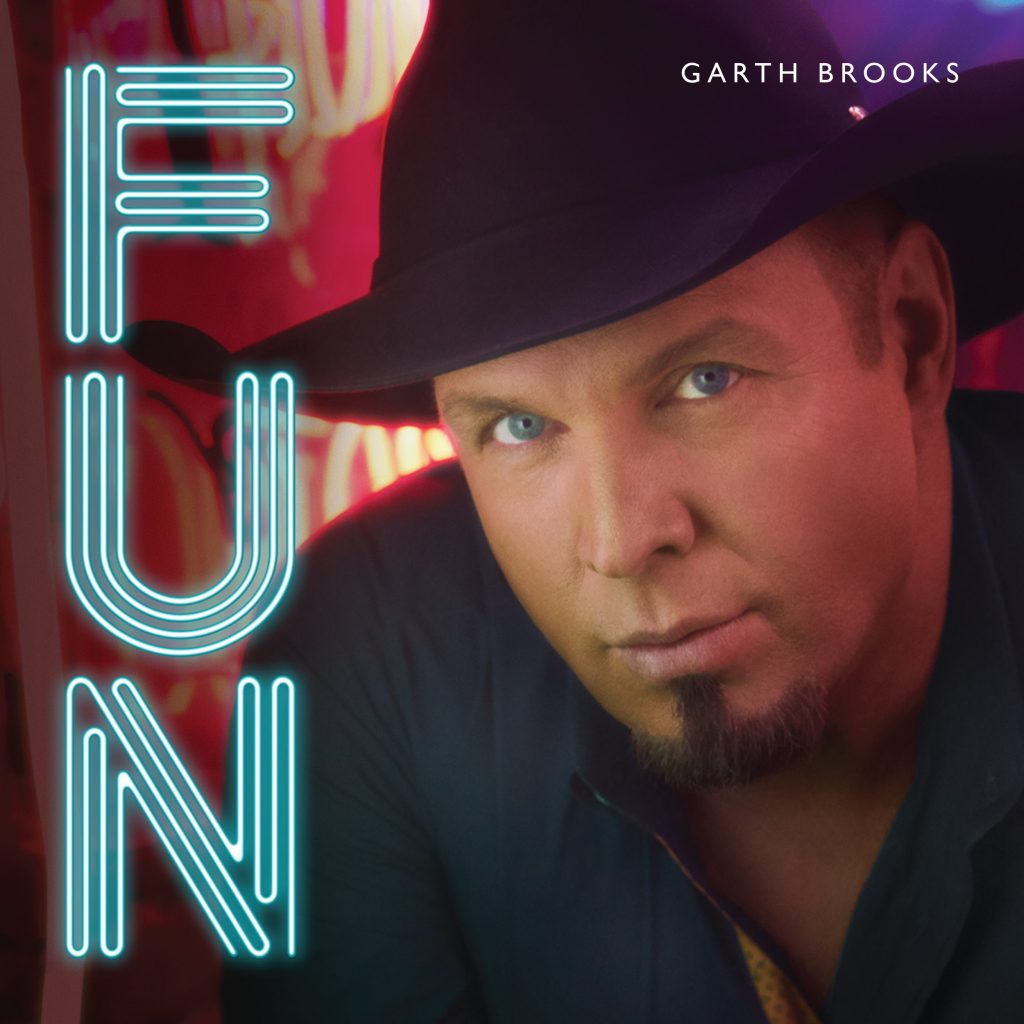Album Review: Garth Brooks’ ‘Fun’
This belongs up there with Garth's best.

We could all use a healthy dose of fun these days, and Garth Brooks is delivering it fourteen-fold in his latest album, which is appropriately titled Fun, set for release November 20th. Brooks is having an almost enviable big time, criss-crossing between styles that include an old-fashioned Texas cowboy tune, a Jamaican-infused number, and a gospel-ish shouter called “Amen.” The joy and playfulness in his vocals are readily apparent, and, in turn, we experience some vicarious fun by happily going along with whatever Brooks has up his eclectic sleeve. It is a trip worth savoring.
Brooks kicks it all off full speed ahead with “The Road I’m On,” which could easily apply to the current state of artistic affairs. The song aptly describes the life of a touring minstrel, and how the road gets in one’s blood and fires up the old adrenaline. ‘The hummin’ of this bluebird is something I’ve been missing,’ Brooks sings in the opening lyric. The excitement of the live show is expertly portrayed in the lines, ‘Each town is a new name, each night is a home game.’ Crunching guitars, a steady drum beat, and complementary B-3 organ help drive the story home, and the tune seems the perfect way to get the good times rolling.

Then comes a nice shift in gear and song theme. Brooks slows things down to a nearly waltz pace with the poignant, “That’s What Cowboys Do.” And what they “do” is generally roam, whether they’re falling for a lady with “deep blue eyes” or facing down a wild rodeo bull. ‘They’re always leavin’ town/Chasin’ sunsets down/It ain’t nothin’ new/Yeah, they’re just passin’ through,’ Brooks explains, with a touch of inevitability in his voice. This is one that George Strait could have easily pulled off, but Brooks proves himself quite capable here, with a clear and easygoing phrasing the lament requires.
Throughout the album, Brooks takes some vocal chances, changing his tone to fit the selection. In “Amen,” best described as an amalgam of gospel and pure funk, Brooks is practically testifying, following the lead of the gospel-influenced opening passage. When he sings, ‘Can I get an Amen,’ it’s forceful, more of a command than a request. Contrast that with “Party Gras (The Mardi Gras Song),” where you’d swear that Oklahoma-born Brooks has some Cajun in his genes. He sounds like a Louisiana boy in this swinging, fiddle-driven number that references such down-on-the-Bayou elements as Zydeco and gumbo. Flexing his vocal muscles even further, Brooks’ voice adopts a bluesy quality in “All Day Long,” parts of which might remind you of his hit “Rodeo,” and lends a little falsetto to the chorus of “(Sometimes You’ve Got to Die To) Live Again,” before ending with a big belt. But none of this ever feels contrived or showy. In keeping with the theme, Brooks is merely having himself a ball, and he wants to let us in on it.
Additional fun songs do abound, as in “Message in a Bottle,” incidentally, not a cover of The Police classic rock staple. “Message” bounces along with a reggae, island feel, complete with steel drums, horns, and a swaying beat. “(A Hard Way to Make An) Easy Livin’” stands as a playful slice of country rock.
But “fun” doesn’t necessarily mean a lack of substance. Part of Brooks’ appeal has always been his willingness to take on timely and important subject matter, and he does so again here. “Where the Cross Don’t Burn” speaks to the friendship between a white youngster and a Black man, set against the backdrop of the older man’s funeral. As the featured guest performer, Charley Pride turns in an emotional rendering of one verse. “(Sometimes You’ve Got to Die To) Live Again” plays into another of Brooks’ strengths, interpreting songs of philosophical uplift, which his fans have long embraced.
The album also features Brooks’ duet with wife Trisha Yearwood on “Shallow,” from the movie A Star Is Born, and his crackling collaboration with Blake Shelton, “Dive Bar.” Overall, there’s a great balance of material, and Brooks has never sounded more poised or self-assured. Now in his late 50s, Brooks still retains the power to deliver the goods and entertain at the same time. Fun belongs right up there with his best work, including No Fences and Ropin’ the Wind.


